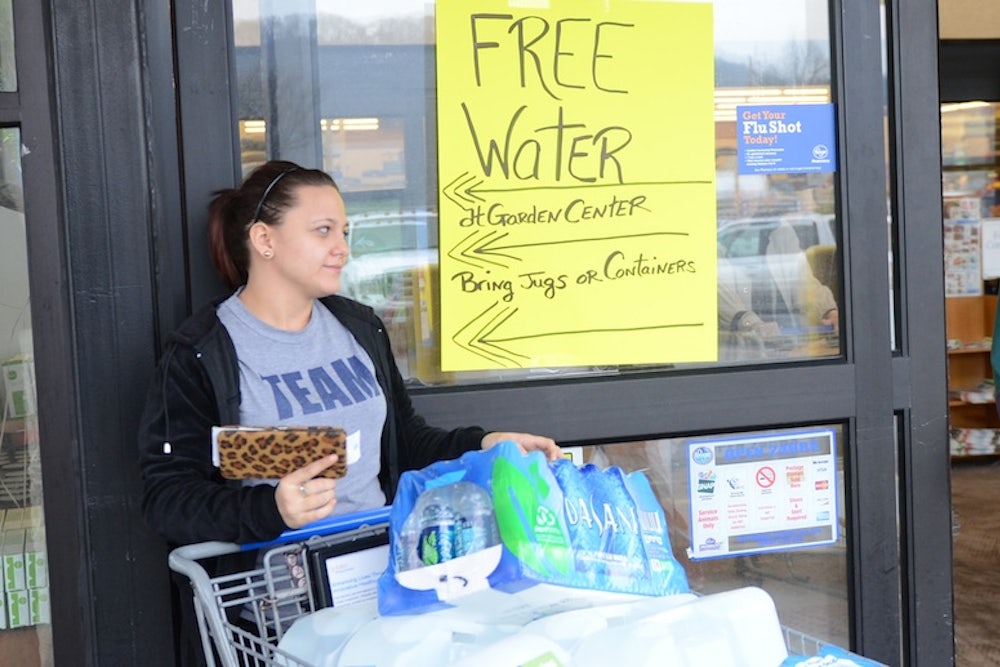When a January 9 chemical spill at Freedom Industries, a coal-processing plant in Charleston, West Virginia, contaminated the drinking water for more than 300,000 people, West Virginians wanted answers. Now, we know who they blame for the accident—and it's not the coal industry.
A poll of 504 West Virginia voters, released today by the Sierra Club, found that despite the state’s conservative lean, residents across party lines overwhelmingly favor more regulation of the coal industry. But few West Virginians directly blame the coal industry, a vital sector of the state's economy, for last month’s spill.
Conservatives often rail about regulatory overreach, especially in agencies such as the Environmental Protection Agency, but 68 percent of West Virginians—including 57 percent of Republicans—felt that stronger regulations would have prevented the Elk River spill.

“Politics really have very little to do with this point and I believe in some ways this complements the idea that the spill was not simply an isolated, unfortunate incident accident," Jay Campbell, senior vice president of Hart Research, which conducted the poll, said in a teleconference Monday morning. "It’s something that could have been averted [with] stronger and better regulations and more enforcement truly could have made a difference regardless of one’s political ideology and outlook.”
As for the coal industry's responsibility for contamination in West Virginia, the responses were more mixed. When asked directly about the Elk River spill, only 40 percent of West Virginians responded that the coal industry had "some" or "a lot" of responsibility for the spill. But when asked about water and air pollution in West Virginia in general, 65 percent of West Virginians thought the coal industry had some or a lot of responsibility.

Despite coal's importance to West Virginia's economy, West Virginians are clearly wary of the industry's political power: 61 percent of respondents agreed that the coal industry held too much influence in state politics, and 58 percent—including 51 percent of Republicans, preferred a candidate who is independent of the industry.
